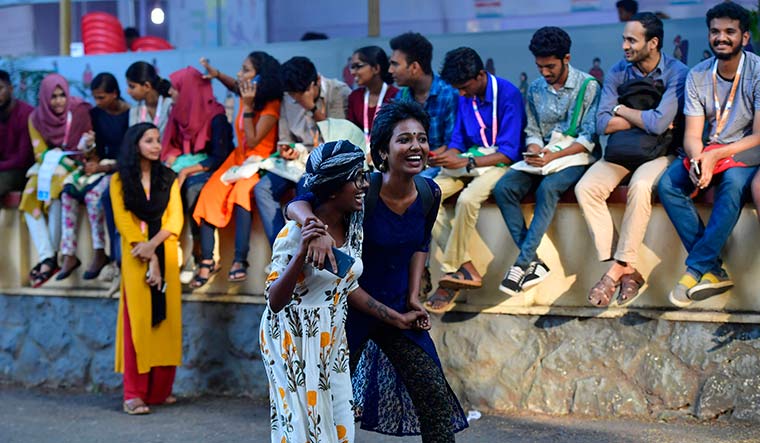It is that time of the year when Thiruvananthapuram attracts more than 12,000 film buffs from all over India. They come in all colours and genders, from all classes and age groups, making the International Film Festival of Kerala (IFFK) one of the most inclusive spaces to celebrate cinema in the country.
“Coming to Thiruvananthapuram for the IFFK is like an annual pilgrimage for me,” says Velu Shankar, a top media consultant, who has attended every edition from the inaugural one in 1996. Shankar, who is a regular at major international film festivals in India and abroad, says that other major film festivals in India are getting more and more Bollywood-focused, elitist and corporatised.
The IFFK’s plus is its public-friendly character, says Sandeepa Moitra, a film curator. “When you organise film festivals in malls and other such spaces, as in the case with MAMI [Mumbai Academy of Moving Image], it will certainly affect the character of the festival,” he says.
Comparing the IFFK with the International Film Festival of India (IFFI), Goa, he says: “The IFFI, just as the IFFK, is being run by the government. While the IFFI has that ‘sarkari’ feel to it, the IFFK is very professional in its running. Also, the choice of films is much better.”
The current edition of the IFFK features 186 films from 73 countries. Entries fall into 15 categories like Competition, Indian Cinema Now, International Cinema and Retrospective. Award winning filmmaker Anant Mahadevan is all praise for the IFFK audiences’ ability to understand and welcome different genres of films.
As is everything in Kerala, the IFFK also is quite political in its content. Right from the prominence given to films from Third World countries to choosing themes for the festivals—mostly resistance towards autocratic and fascist tendencies—the IFFK wears its political stance on its sleeve. “Good cinema always is a combination of great aesthetics and politics,” says Vinay Mohopatra, a delegate from Odisha. “Ever since IFFI shifted to Goa, its political content has been toned down.”
Kerala Chief Minister Pinarayi Vijayan, while inaugurating the IFFK, had talked about the festival’s contribution in raising film-literacy in the state and giving confidence to young filmmakers. Sanal Kumar Sasidharan, who won the Tiger Award at the International Film Festival of Rotterdam for his film, S Durga, says that he is totally a product of the IFFK. “The exposure it has given to people like me who have no other film background is immense,” he says.
Sasidharan, however, complains that the IFFK has been ignoring many indie filmmakers, of late. He, as a protest, has been organising a parallel film festival—Kazcha Indie Film Festival—in Thiruvananthapuram for the last two years.


